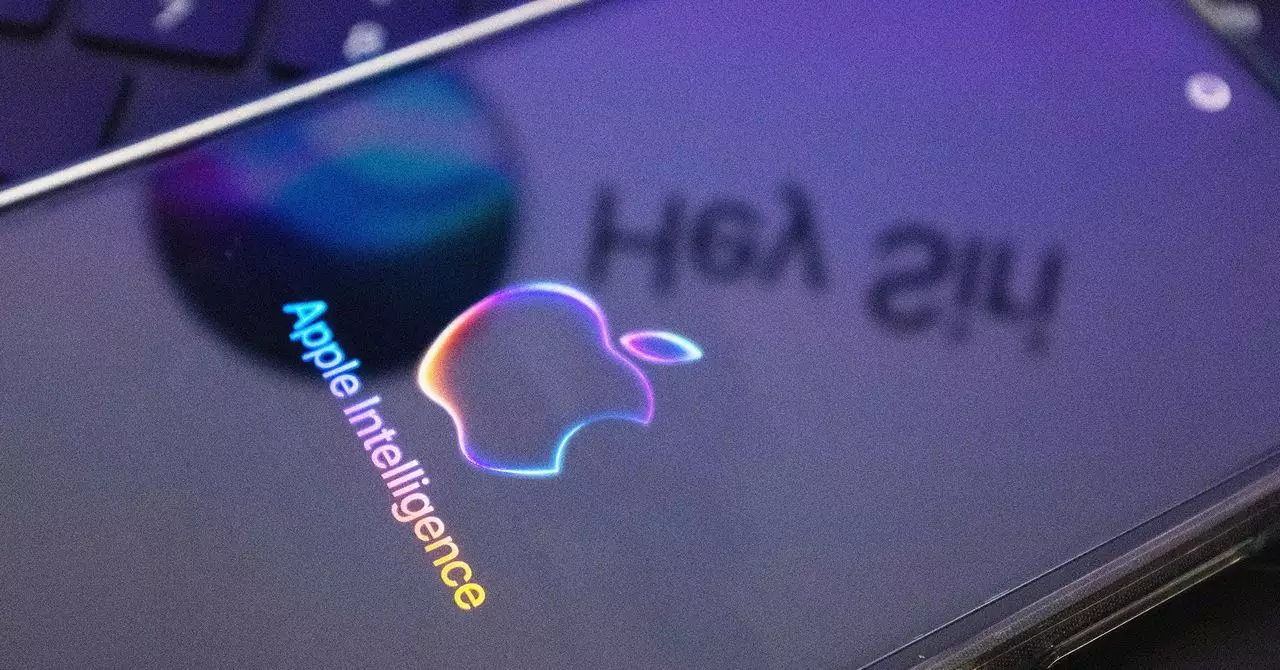From its inception, Siri has been a controversial chapter in Apple’s ongoing narrative of technological innovation. The co-founder of Siri, Tom Gruber, reflects on the legacy of their venture, illuminating the involvement of the late Steve Jobs in the acquisition. It was a transformative moment that promised a revolution in how consumers interacted with technology. However, the reality of Siri’s design and its subsequent performance paints a more complex picture. Early adopters experienced a glimpse of what Apple envisaged, but much of the execution fell short of expectations.
Siri was not born as an advanced paradigm of artificial intelligence; instead, it emerged as a carefully crafted demo, hinting at the possibilities of intelligent voice interaction but lacking substantive utility for a broad audience. Former Apple executive Richard Williamson emphasized that much of the initial presentation was riddled with “smoke and mirrors.” This admission highlights a stark contrast between the marketing narrative and the actual technological capabilities that consumers encountered.
Understanding the Technical Limitations
At its core, Siri relied on basic keyword recognition rather than the sophisticated natural language processing (NLP) that users today have come to expect. Williamson’s candid assessment underscores a substantial gap: Siri’s inability to comprehend context or engage in meaningful dialogue resulted in frustration and limitations for those attempting to use it. Today’s consumers dominate the digital landscape armed with multiple choices in virtual assistants, particularly with the prowess exhibited by competitors like Google Assistant and Amazon Alexa. These platforms have harnessed superior data analytics and machine learning capabilities to deliver more intuitive interactions.
As Apple strides into a new era with Siri, they face questions regarding the viability of their AI solutions. The underlying technology may have advanced, but is that enough to re-establish Siri’s relevance in a market damned by high expectations set by competitors? Apple’s traditional approach—priding itself on user privacy—has ironically become a double-edged sword. While consumers value data security, this emphasis may also stifle the app’s performance capabilities.
The Privacy vs. Performance Conundrum
Gruber articulates a critical tension within Apple’s philosophy: the desire to maintain a trustworthy privacy-centric brand while simultaneously pushing forward in an increasingly competitive AI space. Where Siri’s utilization of deeper data insights could enhance its performance, it risks compromising the very values that Apple proclaims to uphold. This conflict manifests itself as Siri attempts to evolve while adhering to strict privacy policies—a balancing act not easily achieved.
By opting to process complex queries through external sources like OpenAI, Apple positions itself in a precarious situation. Users may be hesitant to permit their data to provide the assistant with the necessary context for improved performance. This essential hesitation could lead to a paradox where the more sophisticated Siri becomes, the more users might feel they are being asked to compromise their privacy, hindering its adoption universally.
The Future of Siri and the AI Landscape
Examining the future trajectory of Siri involves assessing the dynamics of on-device processing against the backdrop of monumental AI models like OpenAI’s GPT-4. Apple’s approach of blending local AI with cloud processing is innovative, yet its limited parameters—around three billion—stand in stark contrast to the 1.8 trillion parameters seen with its AI competitors. This inherent limitation raises questions about how competitive Siri can truly be.
Looking forward, the success of Siri may largely hinge on Apple’s ability to reconcile privacy concerns with technological advancement. The newer iterations of Siri incorporated with a smaller language model and the involvement of more complex AI systems reflect a duality that could serve as a model for future enhancements. However, it is crucial for Apple to engage transparently with its user base, ensuring they understand both the capabilities and limitations of where this technological journey is heading.
In this innovation-driven world, can Siri rise above its tumultuous past? Or will it remain a symbol of Apple’s struggle to capture the human experience through technology without sacrificing the trust of its users? As the market intensifies, Apple’s next steps will be crucial in determining whether Siri can shed its dubious legacy and emerge as a true smart assistant on par with, or even superior to, its competitors.

